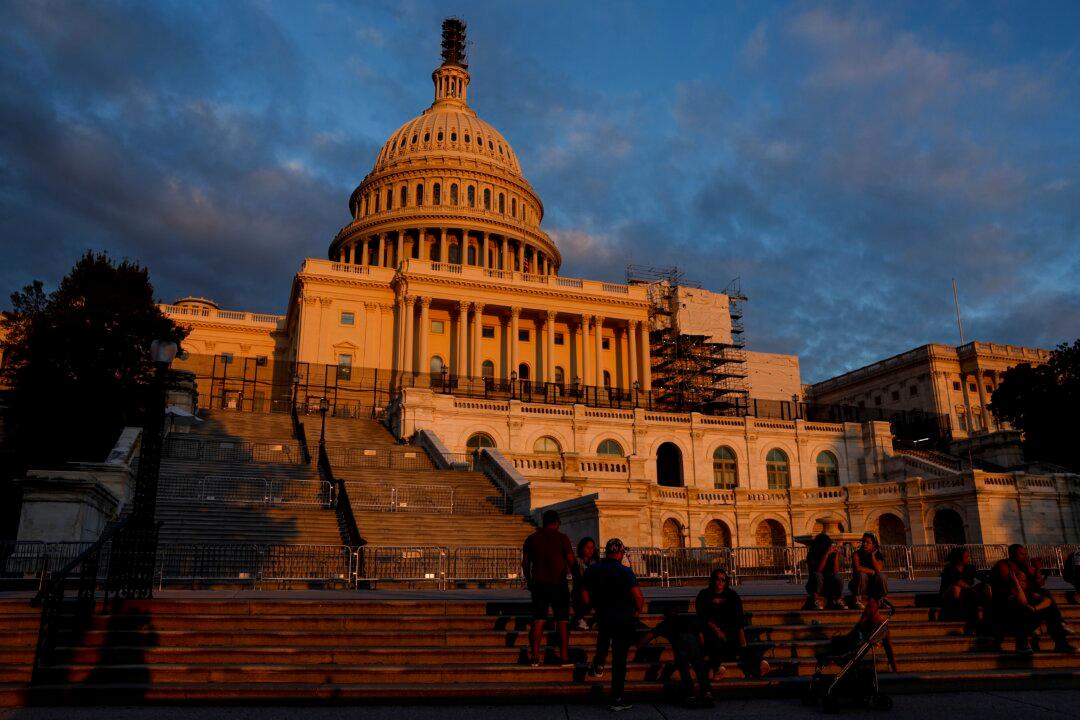Each year in Washington, D.C., watchdog organizations pore through congressional spending to find outrageous budget appropriations tacked onto funding bills, called earmarks, which funnel money to a politician’s home district. Famous examples include $220 million to Alaska’s “Bridge to Nowhere” and $500,000 for a teapot museum in Sparta, North Carolina. This year, the watchdogs are pointing to billions spent on office furniture during the pandemic years.
According to fiscal watchdog organization Open the Books, the Centers for Disease Control, amid giving out direction on COVID-19 protocols, found a way to win taxpayer money to spend $237,960 on solar-powered picnic tables. At the same time, the State Department found $120,000 to buy Ethan Allen recliners for its embassy in Islamabad. All told, while small businesses were being shut down and people lost jobs during the pandemic years of 2020–22, the federal government spent $3.3 billion on office furniture.
Preston Brashers, a senior policy analyst for tax policy at the Heritage Foundation in Washington, D.C., says COVID spending was not only got out of control but also helped put us in the deficit mess the federal government finds itself in now. “We had $23.4 trillion in debt as of March 2020. We’ve added more than $10 trillion since then, which is insane,” he told The Epoch Times. “The same thing happened in the 2008 recession and economic crisis. Once those numbers are baked into the system, they’re there to stay. It’s concerning.”
Some other outrageous furniture spending highlighted in the Open the Books report included $26 million spent on federal government conference rooms—while meetings were held remotely on Zoom. The Securities and Exchange Commission spent $700,000 on its New York regional conference room alone.
The overall problem, according to Citizens Against Government Waste (CAGW) President Tom Schatz, is that the government has never learned to live without earmarks, and few have ever spoken out about ending the practice. He pointed to one congressman who this year received disproportionate funding for his state, all because of his committee assignment.
“This year, Congressman Chuck Fleischmann received more money than anyone in the House, $273.3 million. We named him Porker of the Month for August. A lot of that went to a water project for his district. That despite the fact that in 2014, the House passed a water development resources act which in its authorization piece said there would be no earmarks.”
According to the CAGW, Congressman Fleischmann, a conservative Republican from Tennessee, and a member of the House Appropriations Committee, received almost 90 percent more in earmarks for fiscal year 2024 than the second-highest member of the House of Representatives. The watchdog nonprofit said legislators are well on their way to breaking the all-time record of $29 billion in earmarks set in fiscal year 2006.
The organization has also released this week, what it refers to as “Prime Cuts,” or recommendations for reduced spending in Washington it claims would save $402.3 billion in the first year and $4 trillion over five years. Those cuts include reducing improper Medicare payments by 50 percent ($23.4 billion over five years), eliminating Community Development Block Grants (CDBGs) ($16.5 billion over five years) and funding for the F-35 Joint Strike Fighter ($2.9 billion over five years), something Mr. Schatz claims even the U.S. Air Force doesn’t want.
He says, unfortunately, earmarks are part of doing business in Washington, especially in election years. “The ticket to getting elected is to spend money, create a new program, create something that isn’t necessary or even duplicative. Each member sits on a committee that has its own set of spending programs and they only focus on what they’re doing specifically and if something isn’t working, the answer is to spend more money, which is not the way the rest of the world operates.”
Mr. Preston agrees that earmarks are just part of doing business in Washington, and any effort to change the practice should come from the White House. “It always comes down to incentives, and part of the problem is that this is how things get done in Washington. But I guess if you had a president who came out strongly against the practice, that would go a long way toward mitigating it. Especially now with the deficit. It’s insane how things have begun to spiral.”
The last president to take a stand against earmarks was Ronald Reagan, who in 1987 vetoed a highway bill because there were 152 earmarks attached to it. “The solution is really more people demanding their money be spent more effectively,” Mr. Schatz said. “They did balance the budget in 1995 with Clinton. It can be done. But it requires a White House and a Congress to make those changes. It takes someone like Reagan who created the Grace Commission.” He added that only one candidate for president this year has brought up earmarks and that was Nikki Haley.





